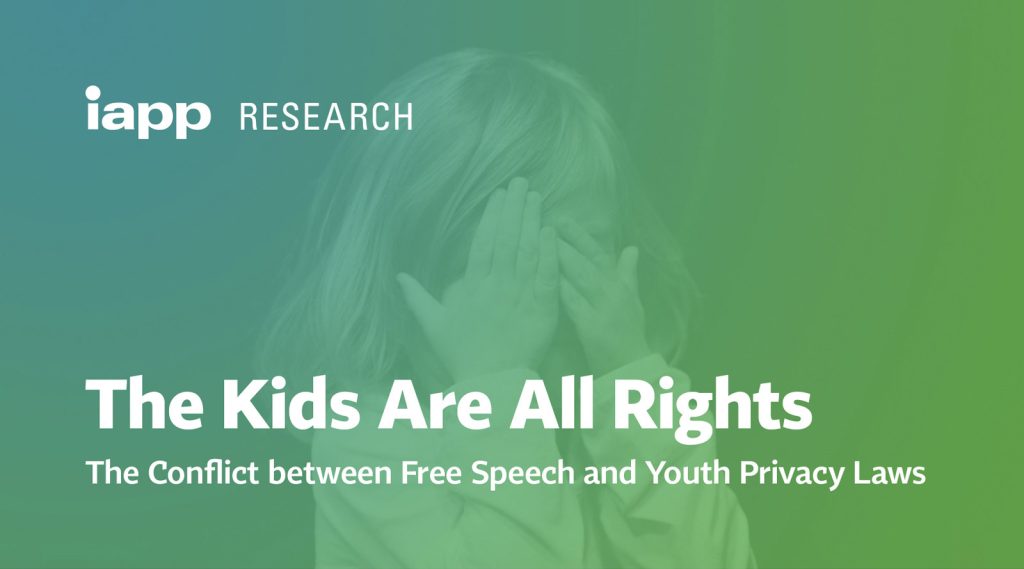Florida has recently passed House Bill 3, or the “Online Protections for Minors” law, which aims to protect children from inappropriate online content. However, many free speech advocates are concerned that the law’s effects could extend beyond minors, creating privacy issues for adults as well. The law, which went into effect on January 1, has sparked legal challenges due to its broad reach and its potential to infringe on both privacy and First Amendment rights.
The Two Parts of the Bill
House Bill 3 is divided into two key sections:
- Social Media Restrictions for Minors:
The bill prohibits minors under the age of 14 from signing up for social media accounts. Minors aged 14 to 15 can only register with parental consent. Critics argue that this regulation infringes upon minors’ First Amendment rights, which have been supported by the U.S. Supreme Court in the past. - Age Verification for Adult Content:
The second part of the law is more controversial. It requires websites that publish adult content to prevent access to minors by verifying the age of all users. The law defines “material harmful to minors” broadly and demands that commercial entities verify the age of anyone attempting to access adult material. This includes requiring age verification for a large number of adult websites, which many have criticized as invasive.
Concerns About Privacy and Free Speech
While the intent behind the law is to protect minors, it has raised serious concerns about privacy and free speech. The law mandates that websites collect sensitive personal data to verify users’ ages, including government-issued identification or biometric information. Although the law requires that this data be deleted after verification, critics argue that the very collection of this information opens up users to privacy risks. Data breaches are a constant concern, and personal details related to one’s sexual preferences could be exposed or even exploited by hackers.
Alison Boden, Executive Director of the Free Speech Coalition (FSC), argues that the law creates unnecessary surveillance and risks privacy for adults who simply wish to access legal content. She stated, “These laws create a substantial burden on adults who want to access legal sites without fear of surveillance.”
Impact on Adult Content Websites
Adult websites have already begun to take action in response to the law. Pornhub, one of the largest adult sites in the world, blocked access to Florida users starting January 1. Other platforms, like X Hamster, have implemented age verification methods. However, some sites, such as XVideos, have not yet made significant changes.
The law has caused confusion among some of the biggest adult content distributors, many of whom have expressed concern about the legal ramifications. While they support efforts to protect children, they argue that these measures do little to protect minors and, instead, infringe upon adults’ rights to access constitutionally protected content.
Legal Challenges to HB3
The law has already faced several legal challenges. The Computer & Communications Industry Association (CCIA), along with the group NetChoice, filed a lawsuit against the state, arguing that HB3 violates First Amendment rights. They argue that the law places burdensome restrictions on free speech and fails to address the actual problem of minors accessing inappropriate content.
One of the most contentious aspects of the law is its requirement that adult websites verify the identity of users, potentially leading to invasions of privacy. The lawsuit claims that this verification method risks exposing personal information, such as sexual preferences or identities, which could be vulnerable to cyberattacks.
Potential for Overreach
Another concern raised by critics is the law’s broad definitions and potential for overreach. The bill defines “material harmful to minors” as anything that lacks serious literary, artistic, political, or scientific value for minors. Some worry that this broad language could be used to censor content that is educational or helpful for older minors, such as information about sexual health or LGBTQ+ issues.
State Sen. Carlos Guillermo Smith of Orlando expressed concerns that the law could be used to block non-adult content related to LGBTQ+ rights or other sensitive issues. He noted that while the law may not currently affect general content, the state’s history of targeting marginalized communities through legislation gives reason to be cautious.
Technical Limitations and Workarounds
One of the key challenges with enforcing HB3 is the prevalence of VPNs (Virtual Private Networks). VPNs allow users to mask their location and access content that may otherwise be restricted. According to the FSC, searches for VPN services surged after the law was enacted, as users look for ways to bypass the age verification process. While the law aims to prevent minors from accessing adult content, it is unclear how effective it will be in achieving this goal, especially with the availability of technology that allows users to evade detection.
Experts Weigh In
Experts argue that HB3 is an ineffective solution to the real issue of protecting minors online. Many believe that more effective solutions exist, such as empowering parents with better tools to monitor their children’s online activity. These tools already exist in the form of parental controls and device-level filters, which can be tailored to block inappropriate content.
Rev. Andy Oliver, a senior pastor in St. Petersburg, believes that the state should not be involved in policing online content for minors. “It should be up to the parents to monitor their children’s online presence, not the state,” he said. He added that rather than passing laws like HB3, the state should focus on improving sex education in schools to equip young people with the knowledge they need to make informed decisions.
Kristen Browde, president of the Florida LGBT+ Democratic Caucus, echoed this sentiment, stating that the law is a thinly veiled attempt to censor not just adult content but also information related to the LGBTQ+ community. “They’re trying to censor not just what children see but facts about our population and our lives,” she said.
Looking Ahead
As the legal challenges to HB3 continue, the law remains in effect. The U.S. Supreme Court is expected to rule on a similar case from Texas by July, which could have significant implications for how age verification laws are enforced across the country.
For now, Floridians will have to wait to see how the courts decide on this controversial law. Many believe that the issues with HB3 highlight broader problems with the approach states are taking to protect children online and raise important questions about privacy, free speech, and government overreach.
Disclaimer – Our editorial team has thoroughly fact-checked this article to ensure its accuracy and eliminate any potential misinformation. We are dedicated to upholding the highest standards of integrity in our content.





More Stories
Free Speech Advocates Challenge Florida’s New Age Verification Law for Online Content
Free Speech Advocates Challenge Florida’s New Age Verification Law for Online Content
Free Speech Advocates Challenge Florida’s New Age Verification Law for Online Content